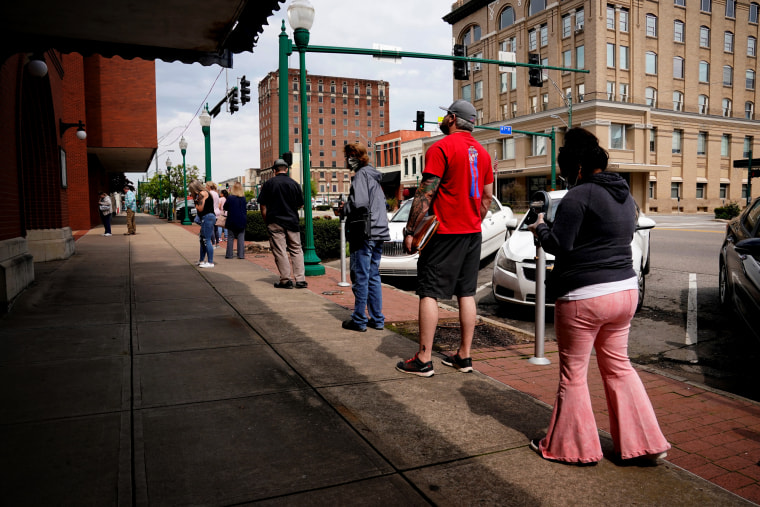One of the critical elements of the $2 trillion economic aid package approved by Congress in March is its "enhanced" unemployment benefits. Democrats crafted a policy in the CARES Act that provides Americans who've lost their jobs $600 per week, on top of the benefits available through state unemployment plans.
With tens of millions of Americans pushed from their jobs by the pandemic, the policy is a lifeline to families across the country. It is, however, temporary: the current benefit will expire over the summer.
With this in mind, House Democrats approved a new aid package last week, called the HEROES Act, which would extend the current jobless benefits through January 2021. According to a Washington Post report, Donald Trump has a very different plan in mind.
President Trump on Tuesday privately expressed opposition to extending a weekly $600 boost in unemployment insurance for laid-off workers affected by the coronavirus pandemic, according to three officials familiar with his remarks during a closed-door lunch with Republican senators on Capitol Hill.
This appears to bring the White House in line with some of its key Capitol Hill allies. Sen. Lindsey Graham (R-S.C.), for example, assured business leaders a few weeks ago that current benefits would continue "over our dead bodies."
Given the number of American fatalities during the pandemic, perhaps the Senate Judiciary Committee chairman could've chosen a different phrase.
Nevertheless, it appears Trump is moving in the same direction. It creates an awkward dynamic: Democrats and Republicans don't disagree on how to help the unemployed; they disagree on whether to help the unemployed.
Some caveats are in order. The president often has little understanding of his own policy preferences, and when speaking to a room of Senate Republicans who are opposed to enhanced UI, Trump probably felt inclined to tell his audience what it wanted to hear. It's entirely possible, if not likely, that the president will say the opposite today, and then reverse course again tomorrow. Dealing with a leader who doesn't care about policy can be exasperating.
It's also possible that GOP officials will look for some kind of compromise, agreeing to extend current benefits, but at a rate less than the current $600 per week.
But let's not lose sight of the potency of this as a political nightmare in an election year. The unemployment rate is already at an 80-year high, and it will almost certainly get quite a bit worse in the coming months. It's against this backdrop that the incumbent president and his party are prepared to take a stand against a popular Democratic effort to help jobless Americans. And since unemployment benefits have a stimulative effect, the same GOP posture will almost certainly undermine the broader economy, too.
This is a spectacularly bad idea, though that doesn't mean it won't happen.

